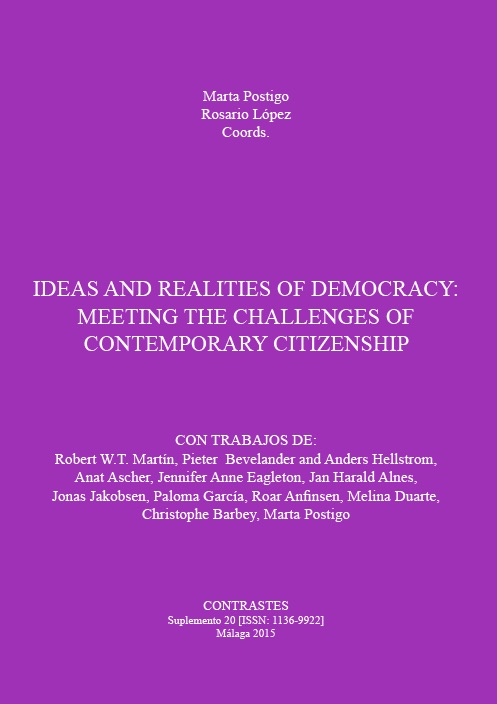Direct Democracy Beyond the Logic of Arch?
DOI:
https://doi.org/10.24310/Contrastescontrastes.v20i3.2416Keywords:
DEMOCRACIA DIRECTA, DEMOCRACIA REPRESENTATIVA, LOCKE, NANCY, RANCIÈRE, ROUSSEAUAbstract
El presente artículo explora los retos políticos que plantea la democracia directa. En el pensamiento político de Locke la democracia representativa consiste en el compromiso de mantener la estructura económica de laisser-faire, mientras que la democracia directa rousseauniana que demanda homogeneidad acaba por no ser muy democrática. La cuestión en juego es si puede haber un régimen político capaz de acoger tanto una participación inclusiva como la diversidad existente de los participantes. Se presentan dos respuestas diferentes a esta pregunta a través de las obras de Jean-Luc Nancy y Jacques Rancière.
Downloads
Metrics
Publication Facts
Reviewer profiles N/A
Author statements
Indexed in
-
—
- Academic society
- N/A
- Publisher
- Universidad de Málaga
Downloads
Published
How to Cite
Issue
Section
License
This journal provides immediate free access to its content under the principle of making research freely available to the public. All content published in Contrastes. Revista Internacional de Filosofía, are subject to the Creative Commons Attribution-NonCommercial-ShareAlike 4.0 license whose full text can be found at <http://creativecommons.org/licenses/by-nc-sa/4.0>
It is the responsibility of the authors to obtain the necessary permissions of the images that are subject to copyright.
Authors whose contributions are accepted for publication in this journal will retain the non-exclusive right to use their contributions for academic, research and educational purposes, including self-archiving or repository in open access repositories of any kind.
The electronic edition of this magazine is edited by the Editorial Service of the University of Malaga (Uma Editorial), being necessary to cite the origin in any partial or total reproduction.










5.png)
